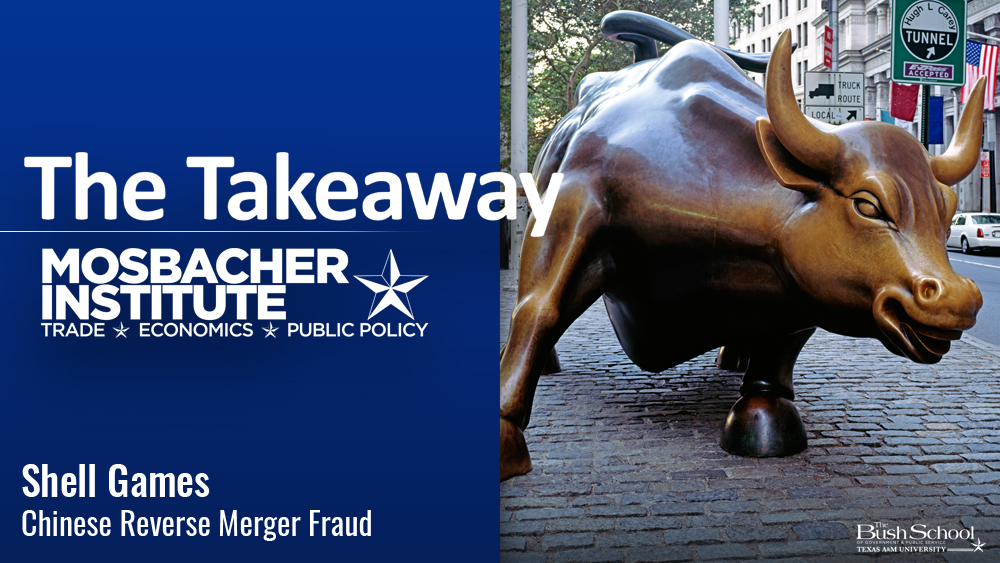
The research for the latest issue of The Takeaway, Shell Games: Chinese Reverse Merger Fraud, was done by Bush School and Texas A&M students as part of a larger project led by Dr. Will Norris on Chinese economic statecraft. The lead author, Benjamin Zimmer, is a recent graduate of the Bush School of Government and Public Service with a Master of International Relations. The other two authors, Joseph Balmain Rodgers and Brian Tripsa, are business honors students at Texas A&M University.
Their policy brief explains that in reverse mergers, a private company buys a public shell company in order to gain the shell company’s listing on a major stock exchange, thus bypassing the difficult regulatory path associated with an initial public offering (IPO). Because Chinese companies typically encounter difficulties when pursuing an IPO, reverse mergers offer them an attractive alternative.
The authors warn us that not all Chinese companies are what they seem when pursuing a reverse merger. Between 2007 and 2010, several Chinese companies effectively used reverse mergers to defraud investors of close to $34 billion by misreporting their financial assets on official Securities and Exchange Commission (SEC) filings. Since then the SEC has tightened regulations, but criminal schemes to fraudulently inflate the stock value of reverse merger companies continue.
The authors urge Congress to protect American exchange markets from reverse merger fraud by updating the Sarbanes-Oxley Act of 2002 to add several specific comprehensive quality control regulations on reverse mergers and standardization of filing requirements across all American exchange markets.
The Takeaway is a publication of the Mosbacher Institute for Trade, Economics, and Public Policy at the Bush School of Government and Public Service at Texas A&M University.

